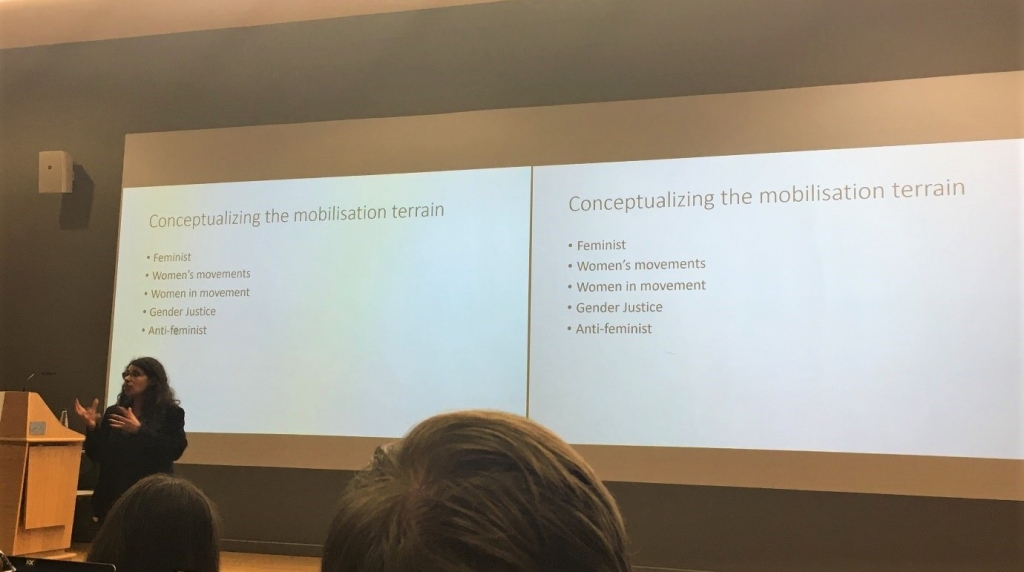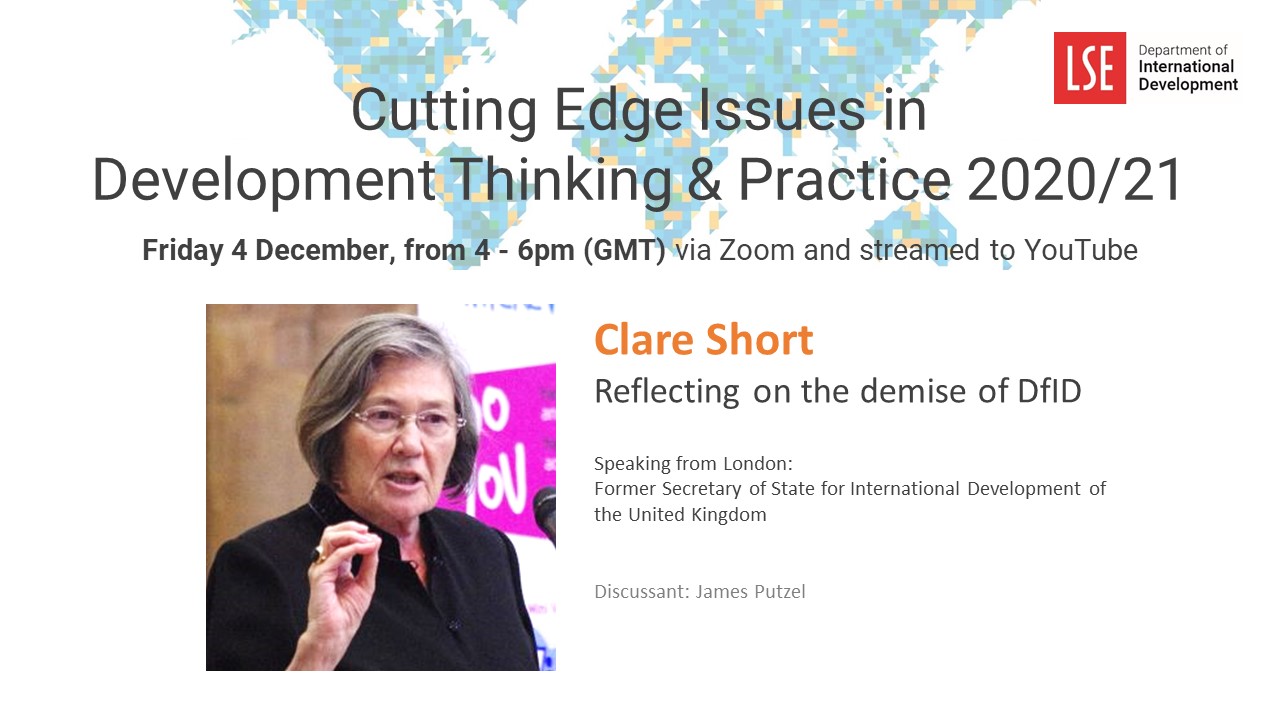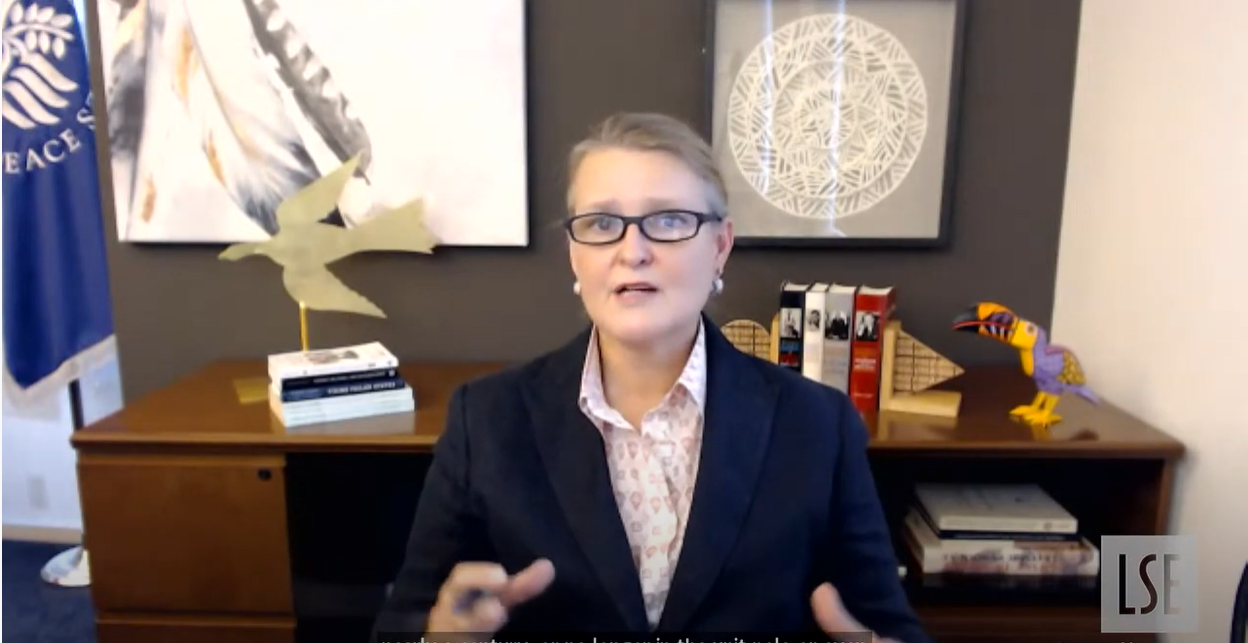MSc Development Studies student, Tao Platt, covered the recent guest lecture from Mariz Tadros, research fellow at the Institute of Development Studies at the University of Sussex specialising in the politics and human development of the Middle East, as part of the Cutting Edge Issues in Development Thinking and Practice lecture series. Tao gives his reflections on the lecture and tells us what he took away from the event.

Mariz Tadros, Professor at the Institute of Development Studies, is a compelling speaker. She is the kind of dangerously strong orator who could convince an audience even if her message lacked substance. Fortunately, vacuity is not a concern. Her lecture for the LSE’s Cutting Edge Issues in Development Thinking & Practice series provided excellent insight into the worlds of gender, mobilizationand revolution, with a particular focus on her home country, Egypt.
Her lecture began with a series of vignettes – a timeline of critical junctures from 2011 to 2013, a period of Egyptian history coloured by discontent, mobilization and regime change. Here, she spoke hurriedly, aiming to provide an introductory overview of a complex topic in a short time. As the lecture jumped from dates, to analysis, to personal experience and back again, it was clear that she could reflect on these issues for months on end. It was after the whirlwind introduction that her analytical toolkit became apparent, and she made good on her early promise to provide “useful concepts for disentangling the issues” by outlining five distinct types of womens’ mobilization.
First, she says, there are feminists, defined as women-led movements of women who mobilize in their gender identity to actively oppose patriarchal structures. Second, there are omen’s movements, where a group of women take a stance, again from the standpoint of their gender identity, but on a particular issue that is not necessarily related to the struggle against patriarchy. For example, the “Moms Demand Action” movement – a grassroots network of women against gun violence in the United States, would constitute a women’s movement. Third, she refers to women in movement. That is, women who mobilize not from the standpoint of their gender identity. For example, women who joined the recent extinction Rebellion protests would be included here. Fourth, there is the gender justice movement. This refers to movements led by individuals from any gender identity, mobilizing more broadly against the lack of dignity that a patriarchal society offers. She attributes the popularization of the anti-sexual harassment discourse in Egypt, in large part, to this movement. Fifth, there is the anti-feminist movement; women who mobilize as a direct ideological challenge to feminism. There are two implications of this categorization. First, it stresses that there is considerable variation in women’s mobilization, and that the Western notion that “all women should come together” does not accord with the heterogeneity of lived experience. In Professor Tadros’ words, “universalizing struggle undermines those in a different type of struggle.” Second, without understanding the variation, we cannot hope to explain or predict the response to different types of movements. For example, she notes that in Egypt, women’s movements were particularly effective in driving empathy and discourse changes, while feminist movements were effective in driving legislative and constitutional change.
It is noteworthy that in the post-lecture Q&A, every question from other professors focused on the fifth mobilization type; anti-feminism. These queries opened on the similarities and complementarities between anti-feminism and the rise of right-wing populism; the hottest topic in modern political science. Professor Tadros’ response was concise. She stated that scholars consistently underestimate the appeal of anti-feminist movements across the gender spectrum. She also stressed the importance of inclusive dialogue in this regard, noting that in her own research, she is careful to ensure that anti-feminists are invited to the table. Whether they arrive is another matter.
Overall, the lecture warned against the danger of oversimplification and Western universality, which are often intertwined. Her typology offers a remarkably useful way to combat these issues in the context of women’s mobilization. In addition, she foregrounds the fact that women’s mobilization is critical for issues beyond gender inequality and women’s empowerment. If we are to make major strides in world issues, including but not limited to climate change, inequality and political unrest, we must ensure that women’s mobilizations, in all their manifestations, are understood and respected.
Don’t forget to join us this Friday for our third Cutting Edge Issues in Development Thinking and Practice lecture with guest speaker Alcinda Howana who will give a talk on “Youth Politics and Social Movements”. Friday 25 October, 4-6pm in the Sheikh Zayed Theatre. External guests please register via: https://bit.ly/2kvbH69.
Tao Platt is an MSc Development Studies candidate from South Africa, with a Bachelor’s degree in Economics from the University of Cape Town. His research interests include issues of education, gender, market competition and informal economies in Sub-Saharan Africa.
The views expressed in this post are those of the author and in no way reflect those of the International Development LSE blog or the London School of Economics and Political Science.





